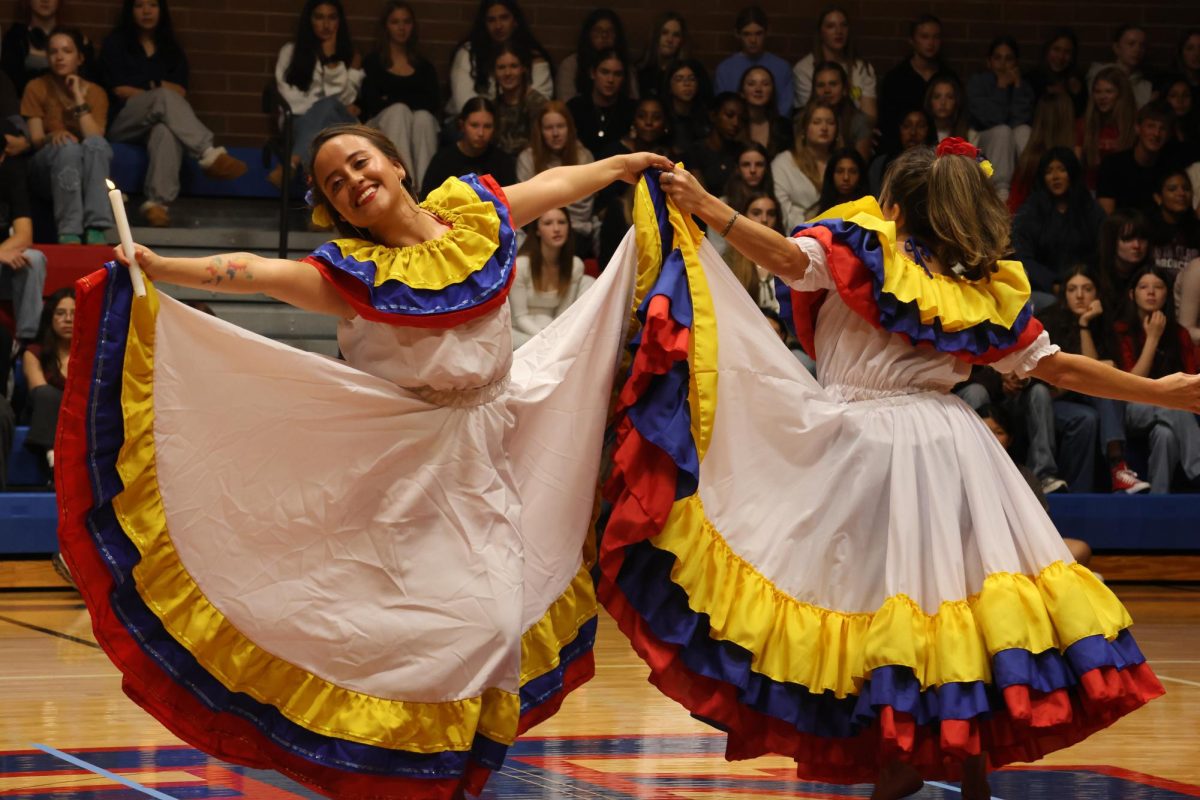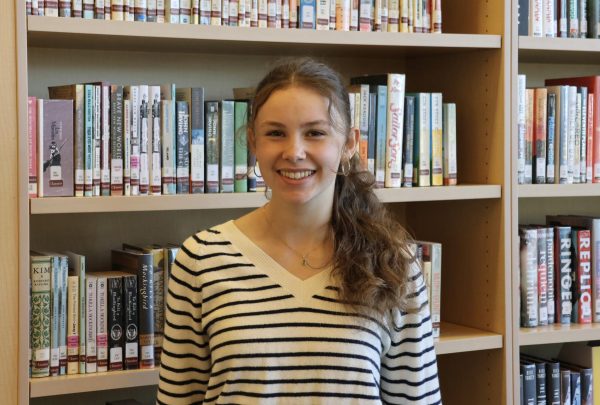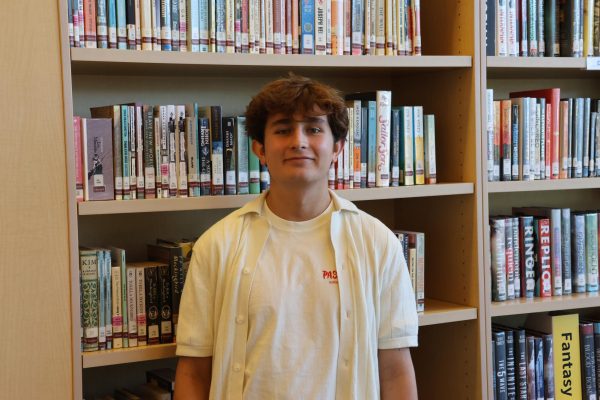The 2025-26 school year marks a big shift in the way La Salle handles technology, most notably with the new school-issued and managed iPad system for the class of 2029.
School-managed devices are not a new idea, as many schools across the nation have implemented restricted Chromebooks. According to science teacher Mr. Kyle Voge, teachers at La Salle have been advocating for a switch to more oversight of student’s school technology for years, a desire reflected by the school-issued devices popular in other schools. This switch benefits students because it provides opportunities for “minimizing distractions by not allowing [students] to play games,” Mr. Voge said, “[And a] uniform system from a tech support standpoint.”
Due to the large volume of iPads required to equip each student with one, La Salle purchases the devices from Apple in bulk with a discount system specifically for schools. Once on campus, a management software is installed, allowing for school-controlled restrictions, similar to but more severe than what La Salle had students install on their personal iPads before.
Within these iPads, the App Store is gone. In its place, freshmen have a much more restrictive replacement: the Self Service app.
The catalog of apps provided by Self Service for students to download — including Google Docs, Slides, Notability, and Gmail — is limited to what’s approved by the school. This selective list was compiled in order to enforce the concept of the iPads being utilized as tools for learning, rather than a way to get off-task in class through video games or social media.
“There is a different mindset,” Spanish teacher Ms. Karen Kessler said. “[The freshmen] don’t look at it as a device to just consume. They look at it as an academic tool, so there’s a shift in thinking.
The devices are also equipped with a software called Apple Classroom, which allows teachers to view students’ screens. Theoretically, this would mean that when a student with a school-issued iPad walks into class, teachers “should be able to see their device,” and even lock it onto certain applications, said IT/IS Operations Director Mr. Tad Shaw.
However, Mr. Shaw explained that, rather than the new system being a “way to monitor what [students] have on their screens,” he sees it as an opportunity for teachers to “give [students] data and make sure that everyone is on the same page.
For health teacher Mr. Chris Sulages, this feature has mostly been a way for him to connect with students who aren’t on task, he said, and help keep them accountable during class time.
While the current comfortability and usage of Apple Classroom varies from teacher to teacher, Mr. Voge expressed excitement for when it becomes fully implemented, but he said this hasn’t happened yet.
“I can take everybody and block all their screens,” Mr. Voge said, describing how he hopes the system will eventually work. “I can take everybody and say, ‘here’s the three apps that should be open, you can’t open anything else.’”
He is not the only teacher who’s had issues with Apple Classroom.
One of the main issues, Ms. Kessler said, is that when attempting to share and play a video on students’ iPads, the video rendering time can be excruciatingly long, and she often chooses to simply project it. Additionally, some of its features — particularly those with sound — can be disruptive to the class environment when engaged accidentally.
“There’s a bad feature on there that calls [the whole class’ iPads] if you hit the wrong thing,” Ms. Kessler said. “It’s intuitive… and all their iPads ring, so that’s a problem.
The management software heavily restricts functionality, preventing students from accessing gaming, social media, and certain websites. They also block VPNs (virtual private networks).
Despite these seemingly strict guidelines, Mr. Shaw is confident that this change in policy will benefit the student body much more than it will inconvenience them.
“I’m feeling very positive about this,” Mr. Shaw said. “I think it is a very positive thing.”
Vice Principal of Academics Ms. Kathleen Coughran highlighted that each student having an iPad is an effective tool. However, there is still a need to “decrease distraction and increase learning and engagement in classrooms,” she said.
This prompted the decision to slowly phase in school-issued iPads.
Ms. Coughran said how the school-issued iPads aren’t about setting consequences for the freshman, but about establishing new standards for the class of 2029 and onward.
While these distractions have been minimized, according to Ms. Coughran, students continue to find workarounds.
“I think it’ll always be a problem,” Ms. Coughran said. “I’ve been in education for 20-plus years, and I think there always will be students ahead of us in the terms of technology.”
The switch to school-issued iPads was not one primarily made by administration, but by an Ed-Tech committee, a group of teachers and staff that meets every month to discuss tech-related issues, according to Ms. Coughran.
Dean of Students Ms. Kenzie D’Ambrosio noted the consistent teacher input surrounding the distracting nature of the student-owned iPads and “the problems that go along with them,” such as students being off-task and distracted during lessons and not speaking to each other, was a contributing factor to the change.
“A lot of the issues I’ve dealt with since I’ve been here have revolved around non-school-issued iPads,” she said.
These issues mostly consist of students misusing their iPads during class time, potentially hindering their ability to learn.
Ms. D’Ambrosio also mentioned that during the first five weeks of school, she has observed a “huge improvement” in focus when compared to the freshman class last year.
Social studies teacher Mr. Michael Doran, one of the teachers who advocated for the switch, believes it came at an opportune time, and coupled with the new phone policy, is the “perfect combo.”
Mr. Doran highlighted that the school is issuing school-owned devices in order to ensure iPads are being used “as a tool for your learning” instead of a distraction.
“I really feel that … in conjunction with the cell phone policy has made a huge difference,” Mr. Doran said.
The reactions from those affected have been mixed. Some are happy with the more restricted devices, and others feel as if the restrictions are over-the-top. Freshman Clara Malmin noted feeling disappointed after shadowing a student who talked about having their own iPad.
“I learned that we would buy our own iPads [and] we could download whatever apps,” Malmin said. “I was really excited to get my own iPad and do my own things.”
She mentioned the frustration for her, her friends, and even teachers surrounding the struggle when it comes to the restricted access to apps. She said that the system makes it difficult to access apps like Adobe and Canva which are needed for some courses La Salle offers.
Another benefit is that all students with personally-owned iPads have to pay for Notability, one of La Salle’s most utilized applications, whereas the paid version is automatically on the managed iPads.
Malmin believes that as a high schooler, “if we are going to be irresponsible and go on games instead of focusing, that should be our own fault and we should suffer those consequences.”
Freshman Zadi Reyna mentioned that despite the iPads, “everyone is just off task,” she said.
Mr. Voge described how there will always be students off task, whether they’re “staring out the window” or “doodling on the desk.”
“But if the kid in that seat is not playing Brawl Stars, the two kids behind him aren’t distracted by looking at [his] screen now,” Mr. Voge said.
The distraction of screens is nothing new.
A study done over a decade ago with thirty-nine undergraduate students from the same university found that those in view of a multitasking peer scored 17% lower on a post-lecture comprehension test.
Yet technology still has its benefits within learning.
Freshman Lucia Kelly has a different outlook on the new school-issued iPads, comparing it to having Chromebooks at her middle school, which were even more restricted. “It’s definitely a lot better than that,” she said.
Kelly really likes the iPad system “because it makes me stay on top of school work,” adding that a lot of her friends agree.
She said that if the restrictions were lifted, she would end up off-task a lot more.
“I feel like I wouldn’t be getting all of [my school work] done,” she said.
Freshman Henry Welsh noted that one of the most prominent restrictions is having no control in the organization of apps on his iPad’s homescreen, especially as some of them are automatically downloaded.
Freshman Brendan Vroman dislikes the difficulty he has found with downloading apps that are not already on the Self Service app. He said that for his German 1 class, one necessary app wasn’t available on the Self Service platform. Downloading it required a lot of effort working with IT, leaving him and other students having to wait and unable to get the app they needed.
Despite not feeling as though the iPad restrictions are necessary for every student, Vroman believes that “a lot of people would be a lot more off-task without them.”
This restricted technology is not a new concept for all.
Freshman Austin Thorpe came from a middle school with a similar technology policy, allowing for a more seamless transition. However, it has been noticeable that other grades have different capabilities with far less control.
That difference comes from the fact that unlike students in other grades who are able to use AirDrop or Apple Messages, members of the class of 2029 do not have access to these features and have to resort to Google Chat or Gmail to send notes during group projects or to absent classmates.
Ms. Kessler misses the AirDrop feature the most, as without it, students are unable to easily fix simple issues such as their Wi-Fi not connecting or an inability to open the E-text. Instead of having a friend AirDrop the link in a matter of seconds which she finds to not be disrupting the pace of the class, there is now a pause in trying to share work.
“Because then we have to stop class and move around and help the students that need help,” Ms. Kessler said. “That impacts the flow of the class and keeping up with the pacing of the curriculum.”
Apps may not be everything as freshmen have been able to access certain things that may not be available within Self Service through the browser. However, popular distractions such as Instagram, TikTok, and certain games remain blocked on browsers having the “access restricted” freshman Lauren Locke said.
“It is not the end-all, be-all,” Mr. Doran said. “You still have to manage your classroom, you still have to do screen checks, you still have to engage with your students — but a lot of those distractions, like fancy gaming and things are taken away.”



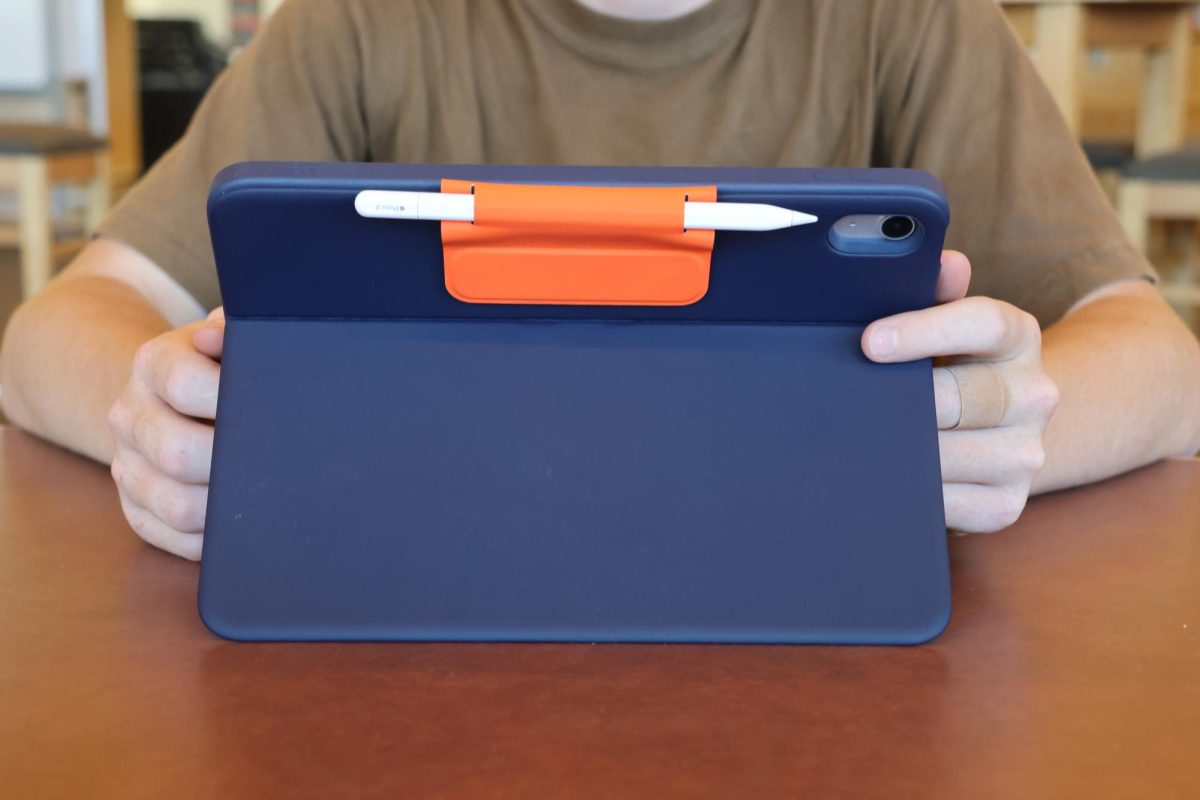
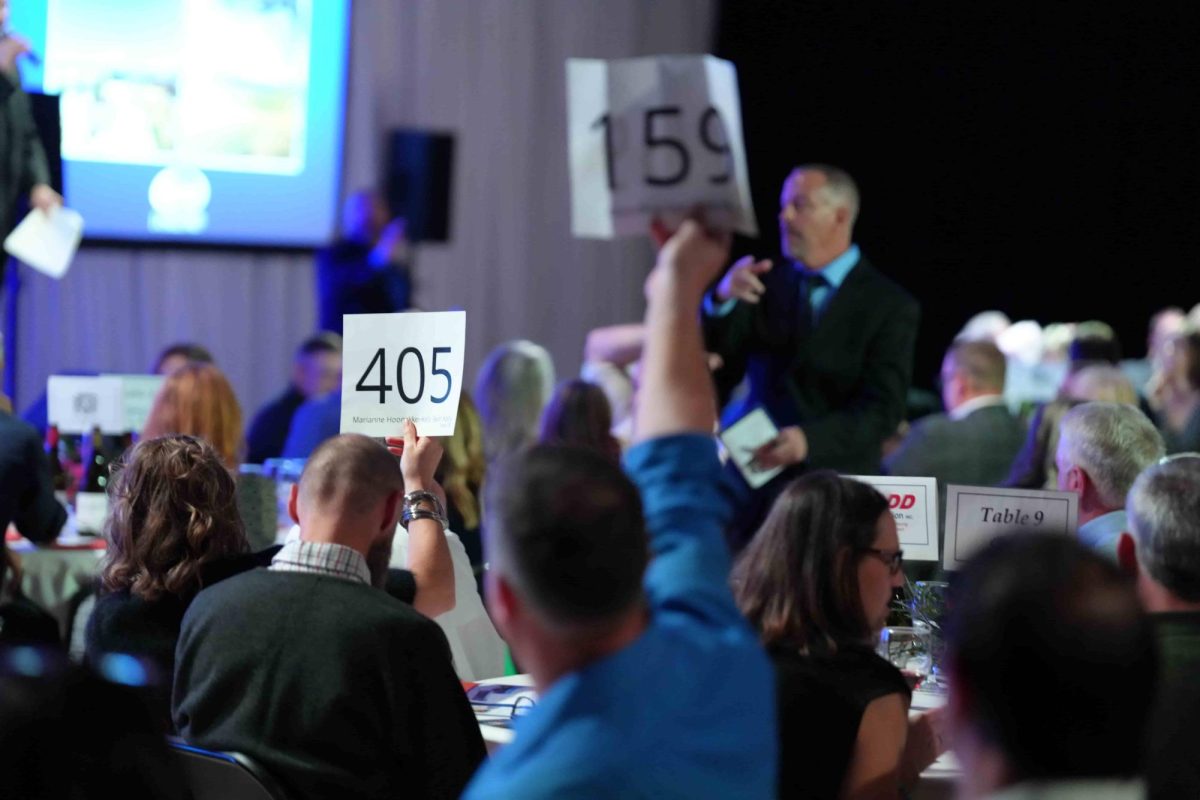


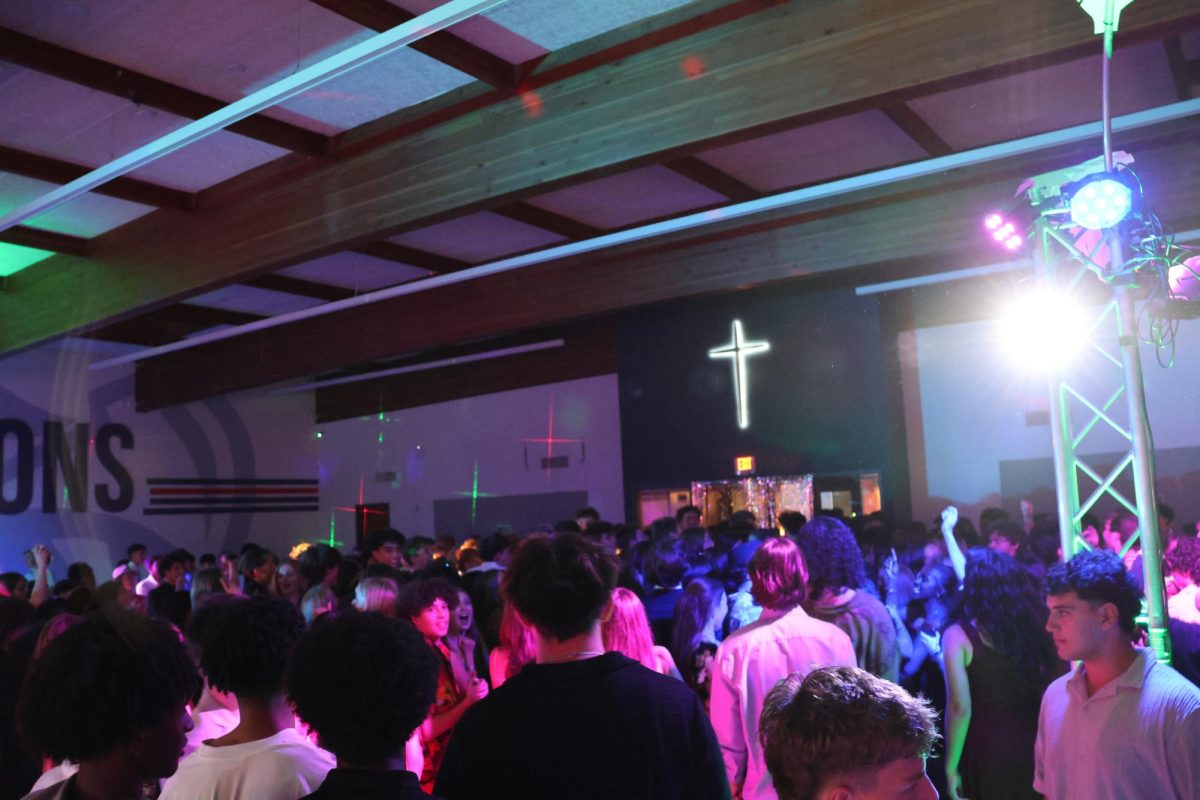
![Mr. Owen Furlong, the temporary Campus Safety Monitor, grew up near La Salle and described how Christ the King was “basically [his] backyard for a long time.”](https://lasallefalconer.com/wp-content/uploads/2025/10/115A2328-1200x800.jpeg)
